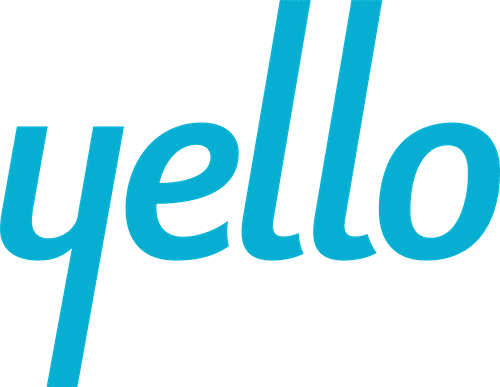Simply put, campus recruiters need purpose-built tools to efficiently hire the best candidates and beat out competition. Despite the need for specialized tools, many teams settle because they already have access to a recruiting add-on within their ATS or another platform used by their experienced recruiting team. In other cases, they adopt QR codes linking to a basic form to provide a more digital experience at events.
Settling for these tools holds your campus team back and ultimately limits your recruiting outcomes. Given the cyclical nature of campus recruiting, most employers are hiring at the exact same time, making any and every competitive advantage you can get that much more important.
In this article, we’ll make the business case to show why you need specialized tools to effectively recruit on campus by looking into:
-
- Why recruiting on campus today is so important for your company’s future
-
- The unique challenges campus recruiters face, and how these challenges differ from those of experienced and other hiring teams.
-
- Why unspecialized hiring tools don’t cut it for campus recruiting.
-
- How you can use Yello to solve campus recruiting challenges.
-
- The business case for purpose-built campus recruiting tools.
Why recruiting on campus today is so important for your company’s future
We believe that the most successful organizations a decade from now will be those that invested effectively in campus recruiting.
Why? Because talent is ultimately what creates value within organizations.
Students entering the workforce are eager to learn and better prepared today than ever. As these employees rise in the ranks over the years, they become great leaders due to their understanding of the business at multiple levels, their continued living of the mission and core values, and through their empathy developed through years of internal relationships.
We’ve witnessed this first-hand. Our customers have met students at career fairs, scheduled them for interviews, evaluated them, and hired them. Years later these same individuals come back as hiring managers, and use Yello, this time as the decision maker. We’ve even seen business unit owners, partners, and executives that we saw standing in line at the career fair many years earlier.
While it may look like proper succession planning is easy, it’s actually a grind. It takes dedicated early talent acquisition leadership to create targets and then hire, inspire, and equip their campus recruiters. Leadership needs real-time data to make adjustments, and historical insights to assess long-term strategy changes and improve on campus recruiting outcomes.
The Unique Challenges Campus Recruiters Face
From the logistics of high-volume recruiting and interviewing, to the time spent traveling and talking with students, to the goals set by leadership to drive diversity, hire early talent, and build talent pipelines for their organizations. It’s easy for campus recruiters to be weighed down by their to-do list. In fact, many recruiters are covering the responsibilities that used to be covered by multiple team members – resulting in burnout and turnover. Campus recruiters today are being asked to do more without the resources they need to hit their recruiting targets and scale their programs. Here are a few specific challenges that separate campus recruiting:
Challenge #1: High-volume recruiting with short time frames
Unlike experienced hiring which often deals with a relatively small number of candidates spread throughout the year, campus recruiting involves engaging with a large volume of candidates in a shorter time frame. Whether it’s coordinating and attending career fairs, hosting on-campus and virtual events, or managing an internship program, campus recruiters experience at least one “busy season” a year where they’re hiring a high volume of candidates in just a couple of months.
Campus recruiters are often tasked with hiring for internships, too, where they may need to fill 150+ positions at a time. Many are also responsible for running early identification programs aimed at attracting and engaging candidates from underrepresented groups. Beyond just recruiting for these programs, they are also tasked with converting these interns into full-time hires.
Since campus teams repeat these recruiting sprints year after year, an optimized system that retains institutional knowledge is crucial to their success, especially to prevent disruptions in case of recruiter turnover. Key campus contacts must also be stored to ensure consistency from season to season, and costs need to be centralized to help plan budgets for the next year.
The main challenge of fast-paced hiring lies in the need to efficiently and accurately capture candidate information, evaluate them, and schedule interviews in a timely fashion (preferably before your competitors)—all while managing the chaos of high-volume recruitment events. Many of these tasks, when done manually or using non-specialized tools, are time-consuming and error-prone, which leads to missed opportunities, a poor candidate experience, or candidates falling through the cracks. For recruiters, it also means you have to spend time after each event sorting through paper resumes, entering data into spreadsheets, and scheduling interviews manually.
Challenge #2: There’s a lot of competition
Given the cyclical nature of campus recruiting, the majority of employers are all hiring at the same time, making any competitive advantage you can get a huge benefit.
Campus recruiting events are fast-paced environments where decisions need to be made quickly, and in many cases the companies that move the fastest become the top choice for candidates. Recruiters must evaluate candidates on the spot and make immediate decisions about next steps, including scheduling interviews. Tools not designed specifically for campus recruiting often lack the ability for real-time evaluations or instant interview scheduling, slowing down your hiring process.
This limitation means recruiters end up relying on written notes, paper resumes, spreadsheets, or makeshift systems that are inefficient and usually not compliant with HR policies. The lack of real-time capabilities can lead to hiring delays, resulting in losing top talent to faster-moving competitors.
Challenge #3: Building and maintaining an engaged talent pipeline
One of the core objectives of campus recruiting is to build a talent pipeline that can sustain the organization’s future hiring needs. Unlike traditional or experienced hiring, where the focus is often on filling immediate openings, campus recruiters must take a more strategic, long-term approach. This involves not only sourcing and engaging with candidates, but also nurturing those relationships over time and filling the top of the recruiting funnel throughout the offseason. More and more campus recruiters are turning to early ID programs as a tool to build their pipeline well before candidates are eligible for entry level roles.
Fragmented processes and a lack of integrated technology make it difficult for recruiters to maintain a clear and comprehensive view of their pipeline. Without a holistic approach, campus recruiters struggle to forecast future hiring needs, understand the ROI of their recruiting efforts, or make data-driven decisions. On top of these concerns, just having a candidate pipeline isn’t enough. You need a way to keep these candidates engaged, build trust, and keep your brand top of mind when it comes time for them to apply.
Proactive and intentional candidate engagement doesn’t stop after a candidate applies, either. It should continue even after the offer is accepted up until the candidate’s first day on the job. Reneges are a growing issue for employers as recent graduates are continuing to interview and field other offers to find the best fit. Many employers are reactive to this issue, but those that are proactive can reduce the likelihood significantly by keeping contact with them post-offer. Without the right tools in place, keeping candidates engaged in a way that’s personalized, organized, and scalable is a huge lift for campus teams.
Challenge #4: Maintaining your employer brand and giving a positive candidate experience every time
Gen Z expects a seamless, tech-driven experience from prospective employers. Manual processes and fragmented communication make employers appear outdated and unappealing. Providing a poor candidate experience damages your employer’s brand, making it more challenging to attract top talent.
To stand out, campus recruiters need tools that facilitate digital engagement, build trust, and set clear expectations throughout the hiring process. A modern and efficient recruitment process enhances the candidate experience and also strengthens your employer brand, making it easier to attract and retain top talent down the road.
Challenge #5: Overwhelming workloads leave little time for strategy and growth
Campus recruiters wear multiple hats, juggling logistics, travel, student engagement, and administrative tasks all while trying to build relationships with campus career centers and candidates. The sheer volume of tasks can be overwhelming, leaving little time for strategic planning or innovation.
Many recruiters find themselves bogged down with repetitive tasks and without the right tools to automate these processes, they’re unable to focus on high-value activities such as strategic planning, candidate engagement, or diversity recruiting. Campus programs become stagnant (or even fall behind) because there’s no time to focus on growing and modernizing the program.

Why other hiring tools don’t cut it
When campus recruiters are limited to using a tool that isn’t built for the intricacies of campus recruiting, they often find themselves facing several significant drawbacks that hamper their program’s potential and outcomes.
Experienced recruiting tools, add-on ATS modules, and other workarounds lack features that support the unique requirements of high-volume, event-based recruiting. One common shortcoming we see is when campus teams use these tools for candidate check-ins at events. They’re using a basic QR code that lacks important features like real-time insights, integrations, and opportunities for automation. Additionally, asking candidates to complete an outdated check-in process can damage candidates’ perception of your brand and leave a negative first impression.
As a result, recruiters must resort to manual processes, workarounds, or additional tools to get the job done. This increases their workload while introducing unnecessary opportunities for added complexity, potential errors, and data inconsistencies, leading to a poor candidate experience and less time for your team to focus on strategic tasks and growth.
When campus recruiting teams are forced to use tools that don’t fit their needs, the tools are poorly adopted. This makes it hard for your team to efficiently execute tasks and achieve the desired outcomes. Sometimes company leadership doesn’t fully understand why campus recruiters need their own tools, and force consolidation while still expecting the same outcomes. We’ve seen this play out time and time again, where companies leave Yello and ultimately end up coming back (in many cases after only a few months).
Another drawback is the tools that aren’t specifically built for campus hiring focus on metrics and workflows that don’t align with the needs of campus recruiters. Campus recruiters prioritize different KPIs that are often overlooked by tools designed for other types of recruiting like event and campus ROI, application volume, and intern program conversion rates. When your tools fail to provide the necessary insights and data, recruiters can’t accurately refine their strategies or demonstrate the value of their programs to senior leadership.
How Yello Solves These Challenges
Yello’s campus recruitment software is specifically designed to address the unique challenges faced by campus recruiters and fill the gaps left by unspecialized hiring tools through:
-
- End-to-end recruitment solutions: Yello is a comprehensive platform that covers the entire campus recruitment process—including sourcing, events, and interviews. This integrated approach gives you a holistic view of your talent pipeline, ensuring no candidates fall through the cracks. With all the features you need in one place, you eliminate the need for multiple tools and fragmented processes, making your team more efficient and effective.
- Custom workflows for campus recruiting: Yello offers configurable workflows that are tailored to the needs of your team. This means that you can efficiently manage high-volume events, capture candidate data digitally, leave evaluations, and schedule interviews in real time. With the right tools, you nearly eliminate manual data entry and simplify the entire process, allowing you to focus more on engaging with candidates instead of worrying about administrative tasks.
- Real-time evaluations and interview scheduling: Yello includes real-time candidate evaluations and on-the-spot interview scheduling, which allow you to quickly assess candidates at events and immediately schedule interviews, speeding up the hiring process and giving you a competitive edge. Some of our customers integrate the platform’s scheduling tools into their ATS to create a fully automated workflow, further enhancing their efficiency.
- Data-driven insights and dashboards: You need detailed tracking and reporting on the metrics that matter most to your success. Customize dashboards to fit your needs for quick access to the data that’s most important to you, whether it’s event engagement metrics, candidate experience feedback, or pipeline diversity statistics. These insights enable you to confidently make informed, data-driven decisions and effectively demonstrate your program’s value to senior leadership.
- A positive and consistent candidate experience: Give your candidates a modern, digital-first hiring experience. By offering digital resume collection, real-time evaluations, and self-scheduling of interviews, you can provide an engaging and personalized hiring process for Gen Z. This not only improves your employer brand but also increases the likelihood of converting top candidates into hires, giving you another competitive advantage.
- Proactive sourcing and pipelining: Yello customers rely on Yello Sourcing to build their talent pipeline from an active pool of candidates from over 7,000 universities. Our Candidate Growth Marketing Team learns the types of candidates you are looking for and directs our investment into targeted growth marketing strategies to source talent for your organization. These strategies include optimizing educational content, branded events, and targeted digital ads on the channels that Gen Z frequent.
Within Yello Sourcing, the Automated Concierge Sourcing tool works as an extension of your team to surface the best candidates for you, providing quick and ongoing recruiting success without more work. Our internal sourcing team finds candidates who meet the criteria, qualifications and background you specify, and then reaches out to them to encourage them to apply for your high-priority roles.
- Talent segmentation and offseason engagement: After sourcing, use Yello to segment your pipeline using customizable tags and folders, based on criteria such as major, graduation year, geographic location, and more. You can then send custom email campaigns to your pipeline within Yello to keep them engaged throughout the offseason and stay top of mind when it comes time to apply.
You can also leverage SkillsMatch to increase sourcing ROI by finding top matches for your entry-level roles in your existing pipeline. SkillsMatch quickly matches candidates from your Yello CRM to your open requisitions by distinguishing more than 13,000 unique skills.
With an organized talent pipeline, you can quickly identify and engage with top talent, reducing time-to-hire and improving the overall efficiency of your recruitment process.

The business case for purpose-built tools
Specialized tools for campus recruiting are not just a nice-to-have, they are a critical business need because using tools that are not designed to handle the fast-paced, high-touch environment of campus recruitment negatively impacts your team’s efficiency and recruiting outcomes. When your team is forced to work with the wrong tools, it’s more difficult to effectively manage and scale your programs – leading to slower hiring, missed opportunities, and a weaker campus recruiting strategy.
The impact on candidates and your employer brand
The impact of using inadequate tools extends beyond internal inefficiencies—it also affects the candidates and your employer brand. When your processes consist of manual data entry and outdated systems, it reflects poorly on your organization and can deter top talent from engaging with you further. A poor candidate experience not only leads to a loss of top talent but also damages your employer brand, making it harder to attract high-quality candidates in the future. Providing an efficient, engaging, and high-touch hiring experience is essential to position your organization as an employer of choice.
Proven ROI
By reducing time to hire, improving recruiting outcomes, and increasing candidate conversion rates, purpose-built tools like Yello lead to significant cost savings and better return on investment (ROI). There are hundreds of organizations across different industries that have successfully implemented Yello and seen measurable improvements in their campus recruiting efforts. These organizations are able to hire faster, easily manage recruiting events, build engaged talent pipelines, and confidently improve and scale their campus program through a strategy built on data.
When making the case for a purpose-built tool to your leadership team, align the need for a specialized campus tool with broader organizational hiring goals. The decision to adopt a specialized campus recruiting tool is not just about meeting the immediate needs of your team—it’s about positioning your organization for future growth and success.
Conclusion
As a campus recruiter, you understand the unique challenges you face and the limitations of using the wrong tools. You need the right tools in your tech stack to make the most of your efforts.
By advocating for investment in purpose-built tools like Yello, you can empower your campus recruiting team to operate more efficiently, engage more effectively with candidates, and ultimately drive better hiring outcomes with a demonstrable ROI.
Don’t settle for good enough when it comes to campus recruiting. With Yello, you have the power to transform your campus recruiting strategy and drive meaningful, long-term success.
Want to dive deeper?
Check out our guide on why purpose-built tools are no longer optional for campus teams – includes additional data, quotes, and resources.



